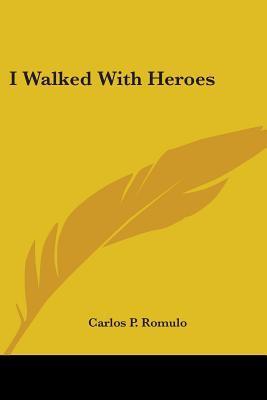What do you think?
Rate this book


360 pages, Paperback
First published January 1, 1961
The matter of the veto came up early in San Francisco. I was one of its determined opponents. It provided that any of the great powers could veto any matter involving world security. I feared that such a ruling, if abused by one of the great powers, would paralyze the United Nations, and this is exactly what has happened. In major issues the United Nations has been immobilized by that all-powerful Russian Nyet.
I teamed up with Minister for External Affairs Herbert Evatt of Australia, who led the fight against the veto, and we began a spirited series of debates.
Recently in New York at a great fair devoted to world trade I saw an entire floor given over to produce from a thriving Japan, while a single small booth held all the Philippines had to offer. Everywhere in America new Japanese stores and restaurants are doing a brisk business. Japanese products are in every American store. When I see Japanese trade being nourished and reactivated in America while the Philippines has to fight for everything it gets from this country can I be blamed for indulging in bitterness?